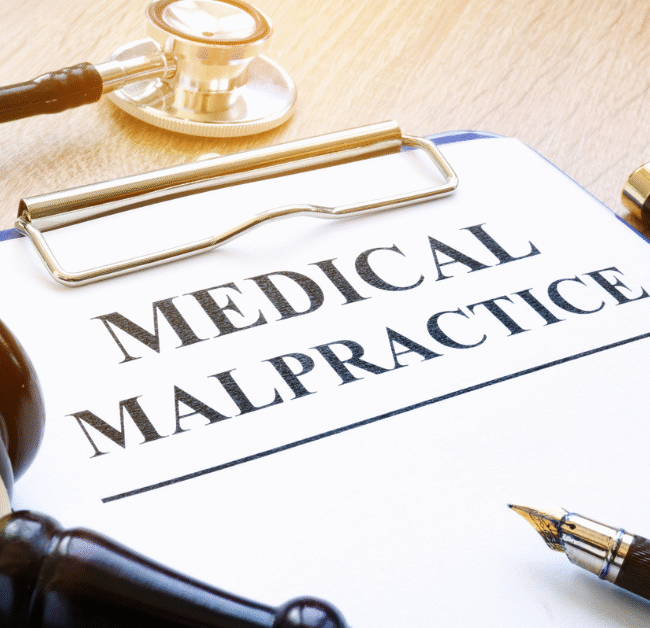
Memomorial Day History
May 26, 2025
Injured in a Bike Rally Accident? Legal Options for Myrtle Beach Motorcyclists
May 30, 2025How to Know If You Have a Medical Malpractice Case in South Carolina

Understanding the Signs of a Medical Malpractice Case
When you visit a doctor, hospital, or clinic, you trust that you will receive proper care. But sometimes, things go wrong. You might leave feeling worse or find out later that a mistake happened during your treatment. If that mistake caused serious harm, you might have a medical malpractice case.
Knowing what qualifies as malpractice in South Carolina can help you decide whether to seek legal help. Here’s what you need to know.
What Is Medical Malpractice?
Medical malpractice happens when a healthcare provider fails to meet the standard of care expected in their profession, and that failure causes harm. In South Carolina, this includes doctors, nurses, surgeons, specialists, and even hospitals or clinics.
A bad outcome does not always mean malpractice. Medicine isn’t perfect. But when harm results from a preventable error, especially one that another qualified provider would not have made, that’s when malpractice might have occurred.
Common Examples of Medical Malpractice
Some situations come up more often than others. Here are a few examples that could lead to a medical malpractice case:
A doctor misdiagnoses a serious illness, leading to delayed or incorrect treatment. A surgeon operates on the wrong body part or leaves tools inside the patient. A nurse gives the wrong medication or the wrong dose. A provider fails to monitor a patient after surgery, missing signs of a dangerous complication. A specialist fails to inform a patient of risks or options before a procedure.
These are just a few possible scenarios. The key is that the provider’s actions, or inaction, must fall below accepted standards and cause real harm.
What You Need to Prove
To move forward with a medical malpractice case in South Carolina, you must prove four important things:
First, the provider owed you a duty of care. This usually means there was a formal relationship, such as between a doctor and a patient.
Second, the provider breached that duty. In other words, they did something that a competent professional would not have done under the same circumstances.
Third, that breach caused your injury. It’s not enough to show that a mistake happened—you must show that the mistake is what directly caused the harm.
Fourth, you must have suffered damages. These could include physical pain, emotional distress, added medical bills, or time lost from work.
Each of these elements must be clearly shown with records, expert opinions, and other evidence. An experienced attorney can help gather and organize the information needed to prove your claim.
Take the First Step Toward Answers
If you think something went wrong with your medical care and you’re now dealing with serious consequences, you don’t have to wonder what to do next. An attorney who handles medical malpractice cases can help you understand your rights, review your situation, and guide you forward.
Winslow Law serves individuals and families across the Grand Strand and the South Carolina Midlands, including those in Myrtle Beach, Pawleys Island, and Columbia. Whether you’re a resident or someone new to the state, our team is here to provide thoughtful, professional support when it matters most.
Contact Winslow Law to schedule a free consultation and find out if you have a case worth pursuing.
Winslow Law—Committed counselors for our clients and community.
FAQs
1. How long do I have to file a medical malpractice lawsuit in South Carolina?
In South Carolina, you generally have three years from the date the malpractice occurred or from the date you discovered or reasonably should have discovered the injury to file a lawsuit. However, there is an absolute deadline of six years from the date of the alleged malpractice, known as the statute of repose. Even if you didn’t know about the injury right away, the law limits how long you can wait. Certain exceptions might apply in special cases, such as those involving minors or when a foreign object is left inside the body. It’s important to speak with an attorney as soon as possible to ensure you don’t miss your window to take action.
2. What do I need to prove to have a valid medical malpractice case in South Carolina?
To bring a successful medical malpractice case in South Carolina, you must prove four things. First, that the provider owed you a duty of care, usually through a formal doctor-patient relationship. Second, that the provider failed to meet the accepted standard of care, meaning they acted in a way that a competent professional would not have under similar circumstances. Third, that this failure directly caused your injury. Finally, you must show that the injury resulted in actual damages, such as added medical costs, missed work, or pain and suffering. Each part of the case must be backed by clear evidence, often with help from expert witnesses.
3. What types of compensation can I recover in a medical malpractice lawsuit in South Carolina?
In South Carolina, you might be able to recover compensation for both financial losses and personal suffering. Financial losses include things like medical bills, rehabilitation, and income lost because you couldn’t work. Personal suffering covers pain, emotional distress, and changes to your quality of life. State law limits the amount you can receive for non-economic damages like pain and suffering. The cap is set at $350,000 per healthcare provider, with a total limit of $1.05 million if more than one provider is involved. In rare cases where the provider’s actions were especially reckless or harmful, the court might also award punitive damages as a form of punishment. These limits are not a guarantee of any specific amount for any particular case. Every case involves unique facts, different types of injuries, and different legal issues. Because of this, outcomes will vary based on the specific details involved.



